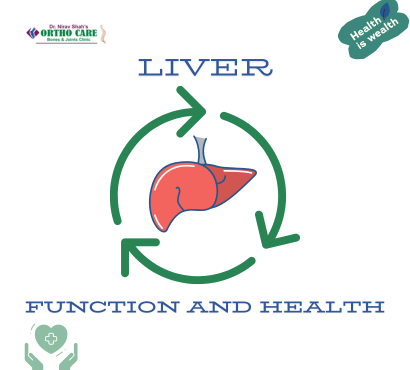The liver is a vital organ that plays numerous crucial roles in the body. It is responsible for filtering blood, metabolizing nutrients, producing bile, and regulating various biochemical processes. A healthy liver is essential for overall well-being. This comprehensive guide will explore the functions of the liver and provide valuable tips on how to maintain its health.
Functions of the Liver
The liver performs hundreds of essential functions, including:
- Detoxification: The liver filters toxins, drugs, and waste products from the blood, removing harmful substances.
- Metabolism: The liver breaks down nutrients from food, producing energy and building blocks for the body.
- Protein Synthesis: The liver produces proteins essential for various bodily functions, including blood clotting, immune response, and hormone production.
- Bile Production: Bile is a fluid produced by the liver that helps to digest fats.
- Glucose Regulation: The liver helps regulate blood sugar levels by storing and releasing glucose as needed.
- Storage of Vitamins and Minerals: The liver stores essential vitamins and minerals, such as iron and vitamin B12.
How to Keep Your Liver Healthy
- Maintain a Healthy Diet: A balanced diet rich in fruits, vegetables, whole grains, and lean proteins can support liver health. Limit your intake of processed foods, sugary drinks, and excessive amounts of saturated and unhealthy fats.
- Exercise Regularly: Regular physical activity can help prevent obesity and improve liver health. Aim for at least 30 minutes of moderate-intensity exercise most days of the week.
- Limit Alcohol Consumption: Excessive alcohol consumption can damage the liver and lead to liver disease. If you drink alcohol, do so in moderation.
- Avoid Harmful Substances: Avoid smoking, illicit drugs, and exposure to toxins that can harm the liver.
- Get Vaccinated: Protect your liver from viral infections like hepatitis B and C by getting vaccinated.
- Manage Your Weight: Obesity can increase the risk of liver disease. Strive to maintain a healthy weight through a balanced diet and regular exercise.
- Take Medications as Directed: Follow your doctor’s instructions for all medications, including over-the-counter drugs. Avoid self-medication or mixing medications without consulting a healthcare professional.
- Monitor Your Liver Health: Regular check-ups with your doctor, including blood tests to assess liver function, can help detect any early signs of liver problems.
The liver is a vital organ that plays a crucial role in maintaining overall health. By following healthy lifestyle habits and seeking regular medical care, you can help protect your liver and prevent liver disease. If you have concerns about your liver health, consult with a healthcare professional for personalized advice.
Frequently Asked Questions
-
What are the signs of liver problems?
- Symptoms of liver problems may include fatigue, jaundice (yellowing of the skin and eyes), abdominal pain, nausea, vomiting, and weight loss.
-
Can liver damage be reversed?
- In some cases, early detection and treatment can help reverse liver damage. However, advanced liver damage may be irreversible.
-
What are the risk factors for liver disease?
- Risk factors for liver disease include excessive alcohol consumption, obesity, hepatitis infections, and certain medications.
it’s essential to consult with a healthcare professional for a proper diagnosis and treatment plan.

